1. first Come First Serve (FCFS) :- This scheduling is a type of non-preemptive scheduling. FCFS scheduling is the simplest scheduling. In the "First come first serve" scheduling algorithm, as the name suggests, the process which arrives first, gets executed first, or we can say that the process which requests the CPU first, gets the CPU allocated first The implementation of the FCFS policy is easily managed with a FIFO queue. When a process enters the ready queue, its PCB is linked onto the tail of the queue. When the CPU is free, it is allocated to the process at the head of the queue. the average waiting time under the FCFS policy is often quite long.
Consider the following set of processes that arrive at time 0 with CPU burst in ms. If the processes arrived in the order P1,P2,P3,P4 and served to CPU then the we can conclude the Average waiting time with the help of Gantt chart as follows:-
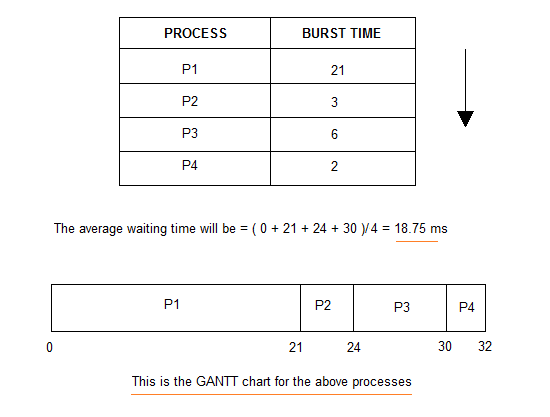
2. Shortest Job First (SJF) :- This scheduling associates with each process’s next CPU burst. When the CPU is available, it is assigned to the process that has the smallest next CPU burst. If the next CPU bursts of two processes are the same, FCFS scheduling is used to break the tie. It can not be implemented practically since burst time of the processes can not be known in advance. It leads to starvation for processes with larger burst time.
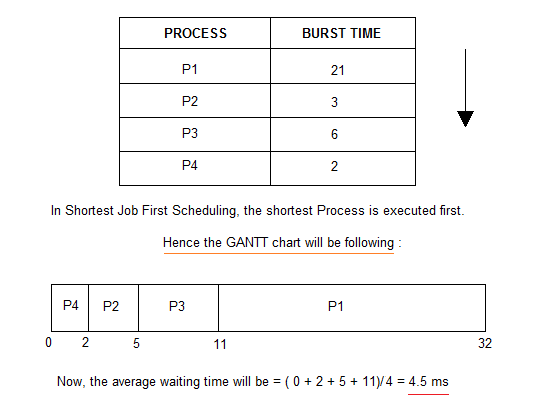 |
| SJF |
3.Shortest Remaining Time First (SRTF) :- SRTF scheduling is also SJF scheduling with preemption In SRTF scheduling jobs are put into ready queue as they arrive, but as a process with short burst time arrives, the existing process is preempted or removed from execution, and the shorter job is executed first. SRTF is also known as preemptive SJF scheduling.
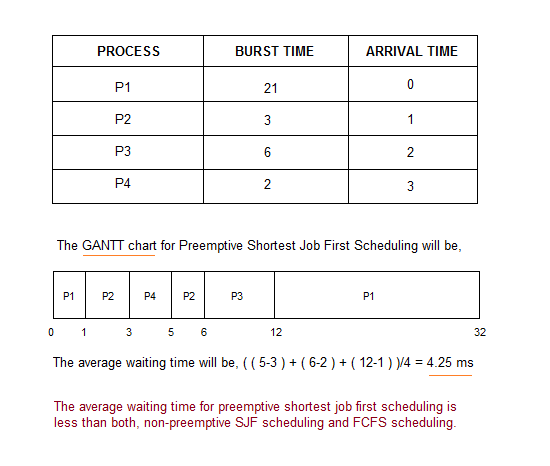 |
| SRTF |
4. Priority Scheduling :- A priority is associated with each process, and Out of all the available processes, CPU is assigned to the process having the highest priority. Equal-priority processes are scheduled in FCFS order. An SJF algorithm is also simply a priority algorithm where the priority is the inverse of the next CPU burst. The larger the CPU burst, the lower the priority, and vice versa. It considers the priority of the processes and allows the important processes to run first.
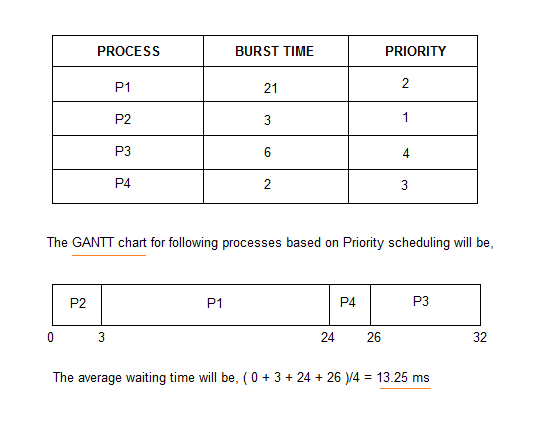 |
| Priority |
Priority scheduling can be of preemptive or non-preenptive A preemptive priority scheduling algorithm will preempt the CPU if the priority of the newly arrived process is higher than the priority of the currently running process. A non-preemptive priority scheduling algorithm will simply put the new process at the head of the ready queue.
5. Round Robin scheduling (RR) :- This scheduling algorithm is designed especially for timesharing systems. It is similar to FCFS scheduling, but preemption is added to enable the system to switch between processes. A fixed time is allotted to each process, called quantum, for execution. Once a process is executed for given time period that process is preemptied and other process executes for given time period. the CPU scheduler goes around the ready queue, allocating the CPU to each process for a time interval of up to 1 time quantum.
Here in the given example time slice is 5ms
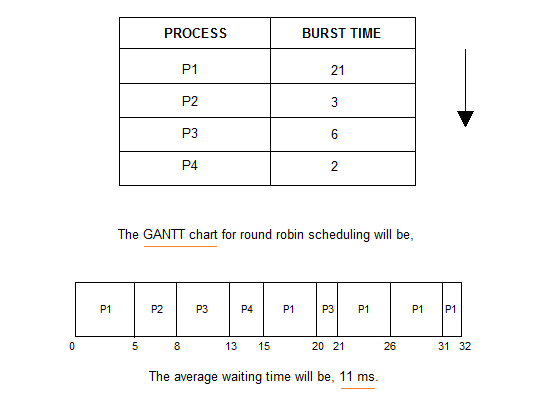 |
| RR Scheduling |
LINK FOR DEFINITION CPU SCHEDULING :- https://priypurnea.blogspot.com/2020/04/cpu-scheduling-in-operating-system.html
Share, Follow and please comment if you find anything incorrect, or to share more information about the topic discussed above.
Share, Follow and please comment if you find anything incorrect, or to share more information about the topic discussed above.

Comments
Post a Comment
Please comment.